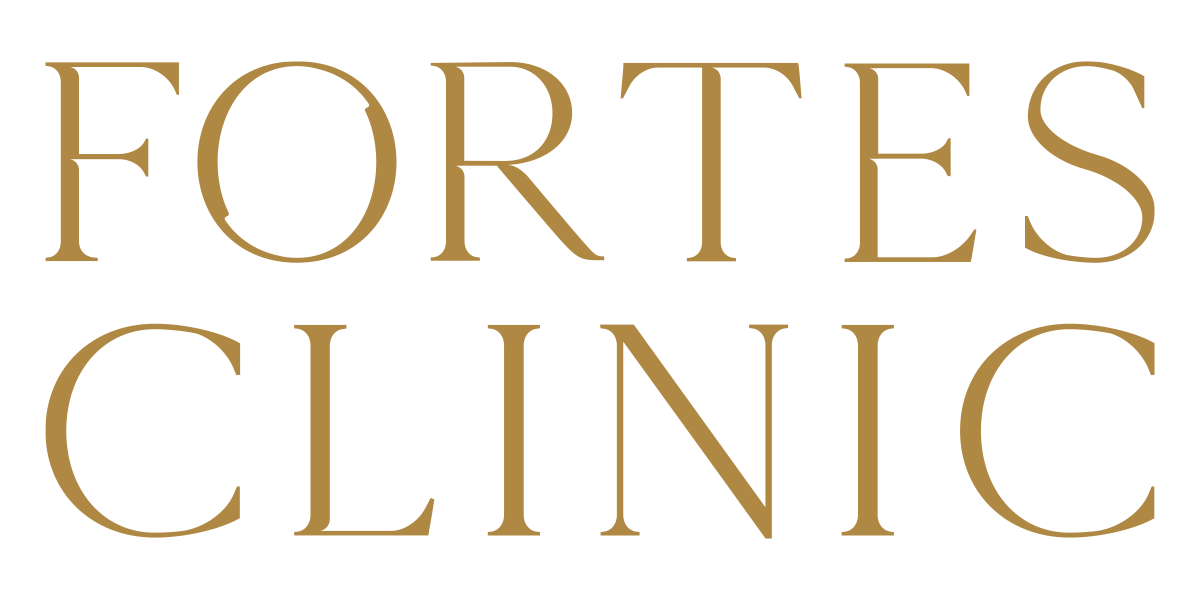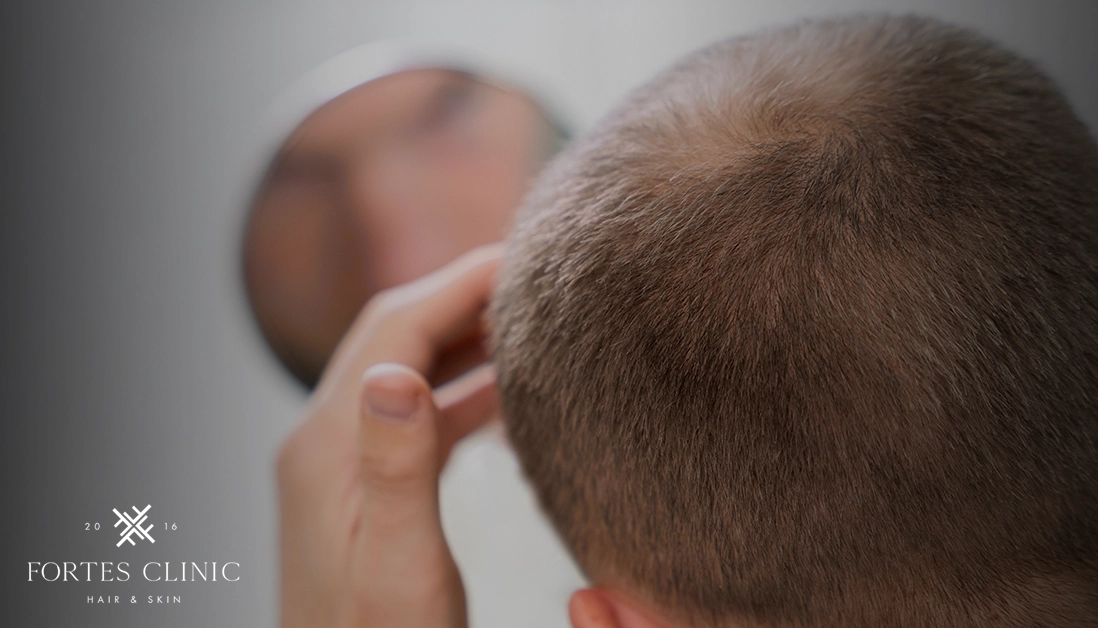Introduction
If you’re experiencing hair loss and considering a transplant, you may find yourself wondering, what age to get a hair transplant? While there’s no one-size-fits-all answer, age plays an important role in determining the best time for a successful and long-lasting result. The right timing depends on a combination of age, hair loss pattern, medical suitability, and personal goals.
In this article, we explore how age influences the outcome of a hair transplant, when it might be too early or too late, and how Fortes Clinic helps individuals at every stage of their hair restoration journey.
If you’re unsure about how the procedure works, read our post on how a hair transplant works or explore our guide on how long a hair transplant lasts.
Is There a Minimum Age for a Hair Transplant?
Technically, there is no legal minimum age for undergoing a hair transplant, but most clinics recommend waiting until the patient is at least in their mid to late twenties. This is because hair loss can be unpredictable in younger individuals. Transplanting hair before the pattern of hair loss has stabilised can lead to unnatural-looking results if additional hair loss continues after surgery.
Younger patients may also have unrealistic expectations, wanting to restore a dense, youthful hairline that may not be sustainable over time. Delaying surgery allows the hair restoration specialist to better understand the extent of your hair loss and plan a strategy that will age well and maintain a natural appearance.
Why Waiting Until Your Twenties or Thirties Is Ideal
Most patients who undergo hair transplants are in their late twenties to forties. By this stage, the pattern of hair loss has usually become more predictable, allowing for better planning and more effective graft placement.
In your twenties, you may still be in the early stages of male or female pattern baldness. While this can be emotionally challenging, waiting until the hair loss has stabilised ensures the transplant will be more successful and that your donor area can be used more effectively.
Patients in their thirties often see the best results. At this age, hair loss has typically stabilised, and there is still good donor hair availability. Planning a transplant at this stage can produce long-term, natural-looking results with minimal risk of future complications.
Can You Be Too Young for a Hair Transplant?
The answer is yes, in some cases. Teenagers or men in their early twenties who rush into a transplant may regret the decision later if their hair continues to recede around the transplanted area. This can leave an unnatural look and may require further surgeries to correct.
For young patients with early-stage hair loss, non-surgical treatments such as Finasteride, Minoxidil, or PRP therapy may be more appropriate. These methods can slow down the progression of hair loss and preserve existing hair while postponing the need for surgery.
To learn more about alternatives before committing to surgery, visit our article on non-surgical hair loss treatments.
Can You Be Too Old for a Hair Transplant?
Age alone is not a limiting factor. Many patients in their fifties, sixties, and even seventies have undergone successful transplants. The key consideration is not age, but rather overall health, scalp condition, and the availability of suitable donor hair.
Older patients often have more realistic expectations and are generally focused on achieving a subtle, natural improvement rather than restoring their teenage hairline. If you are in good health and have a healthy donor area, a transplant can still provide excellent results well into later life.
Other Factors That Matter More Than Age
Hair Loss Pattern
The extent and stability of your hair loss are more important than your actual age. A stable pattern of loss makes it easier to predict how your hair will continue to thin and where grafts will be most effective.
Donor Hair Quality
Successful transplants depend on the quality and density of hair in the donor area. A strong donor area is essential regardless of age.
Medical Suitability
Conditions like uncontrolled diabetes, immune disorders, or scalp infections can affect transplant success. A medical assessment is necessary to determine if surgery is safe for you.
Expectations
Having realistic goals is crucial. A transplant should enhance your appearance, not attempt to replicate a full head of youthful hair. Understanding what the procedure can achieve helps avoid disappointment.
When Should You Start Considering a Hair Transplant?
If your hair loss is stable, you’re in good health, and it’s starting to affect your confidence or quality of life, it might be time to consider a transplant. The best age to get a hair transplant varies from person to person, but generally, individuals in their late twenties to forties are ideal candidates.
If you’re unsure about timing, a consultation can help clarify your options. At Fortes Clinic, we assess your medical history, scalp condition, hair loss pattern, and goals to provide personalised advice on the best approach.
Conclusion
So, what age to get a hair transplant? While there is no universal answer, most experts recommend waiting until your late twenties or early thirties to ensure hair loss has stabilised. However, the most important factors are your overall health, donor hair quality, and readiness to commit to the process.
At Fortes Clinic, we help patients of all ages determine the best time for hair restoration based on their unique situation. If you’re thinking about a transplant, book a consultation and take the first step toward restoring your hair with confidence.



